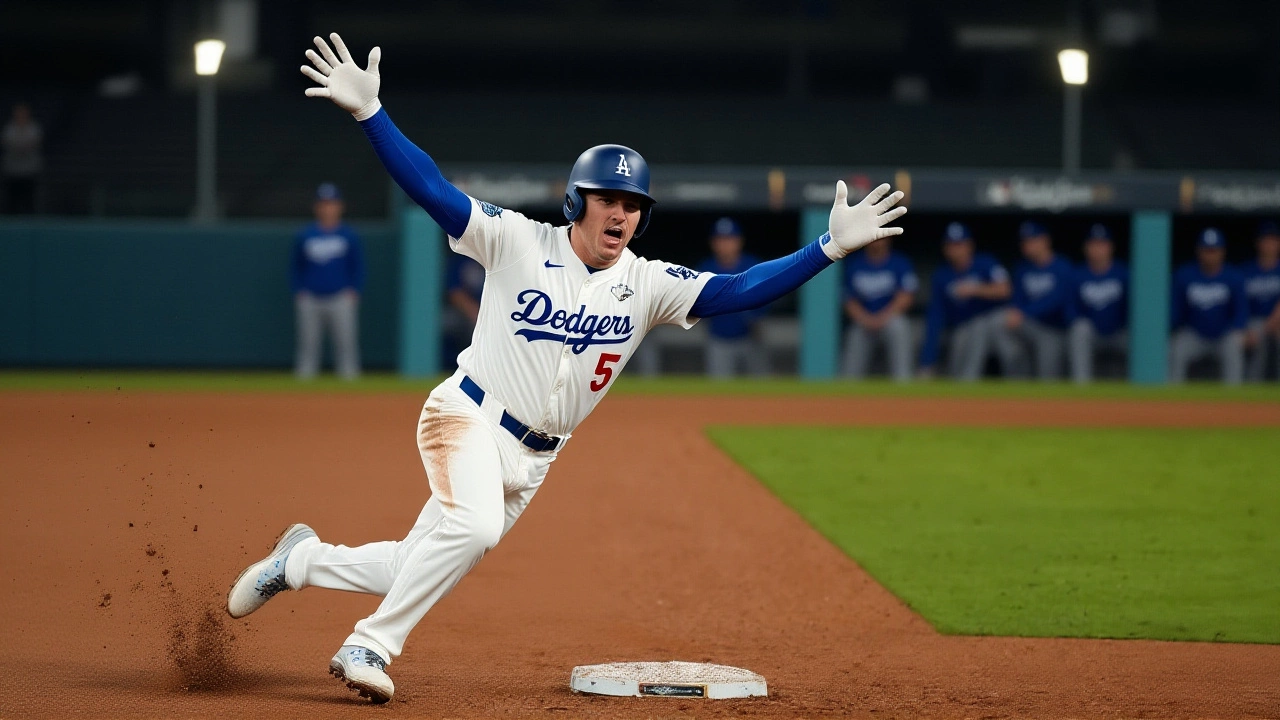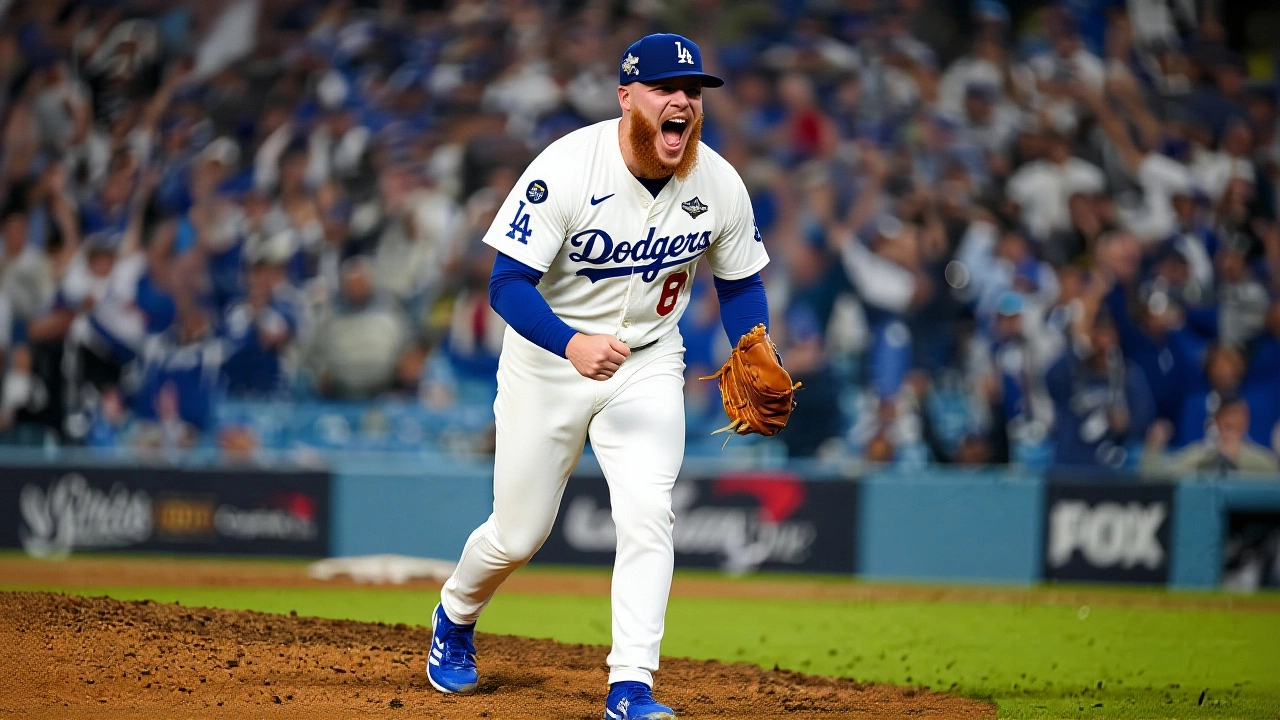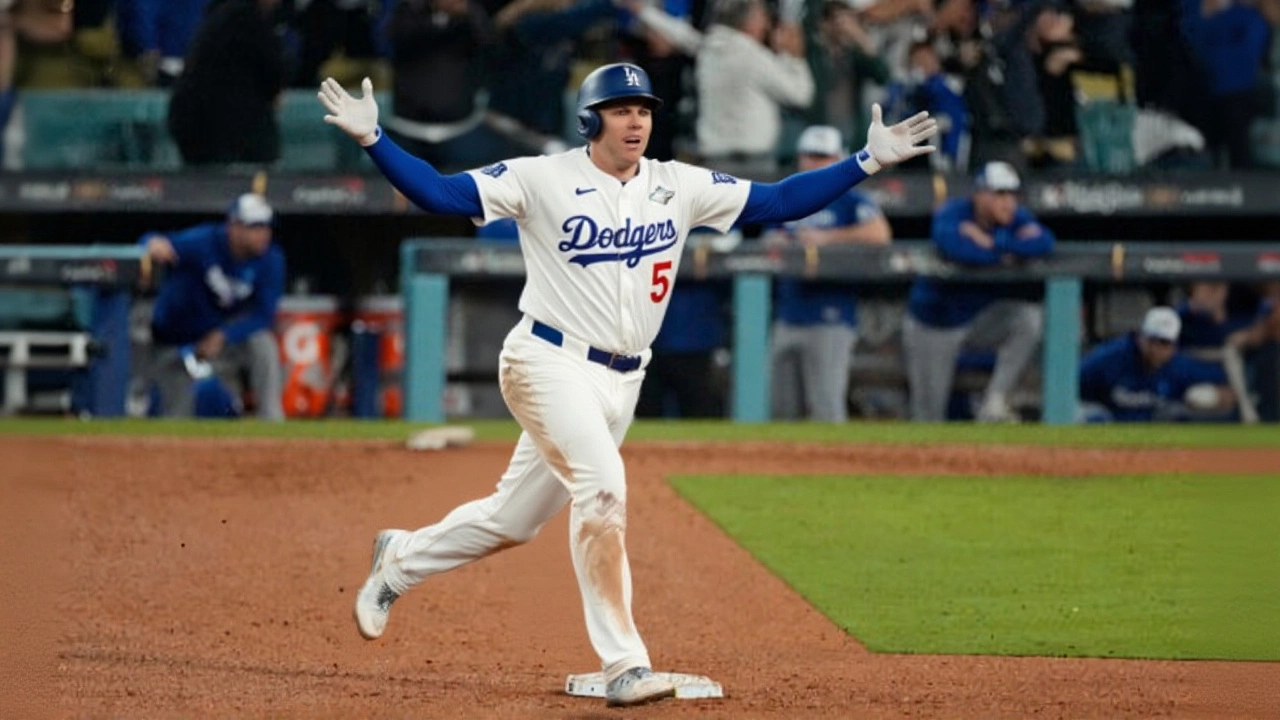When Freddie Freeman crushed a 406-foot home run into the Los Angeles night on October 27, 2025, it didn’t just end a game—it rewrote the record books. The Los Angeles Dodgers defeated the Toronto Blue Jays 6-5 in an 18-inning thriller at Dodger Stadium, tying the longest game in World Series history. The final pitch came at 6:40 PM UTC, after 6 hours and 39 minutes of pure baseball endurance, with Freeman’s blast off left-hander Brendon Little sending 56,000 fans into delirium. This wasn’t just a win. It was a legend in the making.
A Game That Refused to End
It started like any other World Series game—until it didn’t. Tyler Glasnow and Max Scherzer, one a 31-year-old power arm, the other a 41-year-old veteran still hitting 96.4 mph, dueled through four innings. Then came Alejandro Kirk’s three-run homer, flipping the script. By the seventh, Vladimir Guerrero Jr. scored from first on a bloop single by Bo Bichette, dodging a tag by Will Smith to put Toronto up 5-4. The Blue Jays had chances—four of them—in the ninth, tenth, twelfth, and eighteenth. Each time, the Dodgers’ defense held. Each time, the crowd held its breath.
Shohei Ohtani’s Unthinkable Night
Amid the chaos, one man was rewriting history quietly, methodically. Shohei Ohtani reached base nine times—the first player ever to do so in postseason history. He singled, doubled, homered, and was intentionally walked four times. That’s right: four intentional walks in one World Series game. Only Frank Isbell of the 1906 White Sox had ever recorded four extra-base hits in a Fall Classic. Ohtani didn’t just match him—he surpassed the era. He was the engine of the Dodgers’ offense, the only player who could force Toronto’s pitchers into desperation. They didn’t want to pitch to him. So they walked him. And still, he found a way.
The Unsung Hero: Will Klein
When Clayton Kershaw entered in the twelfth to get Kirk to ground out, it was clear: this wasn’t about stars anymore. It was about survival. Enter Will Klein, a 28-year-old reliever who’d never thrown more than 30 pitches in a single game before. He threw 72. Seven. Two. In the eleventh, twelfth, thirteenth, fourteenth, fifteenth, sixteenth, and seventeenth innings. No rest. No mercy. Just pitches. He gave up nothing. Not a run. Not a hit. Not even a walk. Dodgers manager Dave Roberts didn’t blink. "I knew he could do it," Roberts said afterward. "I’ve seen it in spring training. I’ve seen it in the bullpen. Tonight, he just had that look."

The Blue Jays’ Heartbreak
The Blue Jays had 19 hits to the Dodgers’ 18. They had more extra-base hits. More stolen bases. More opportunities. But baseball doesn’t reward volume—it rewards timing. Tyler Heineman, pinch-running for Kirk since the 12th, struck out with runners on second and third in the 18th. Umpire Mark Wegner drew criticism for a slow ball-four call on Daulton Varsho in the 15th, a moment that might’ve changed the game. But in the end, it was a single swing—Freeman’s—that defined it. The Blue Jays didn’t lose because they played poorly. They lost because, in baseball, one moment can erase 17 innings of brilliance.
History Repeats Itself
This was the second time the Dodgers have played in an 18-inning World Series game. The first? Game 3 of the 2018 World Series against the Boston Red Sox, when Max Muncy homered to end it. Now, Freeman has joined that club. The Dodgers are up 2-1 in the series. Game 4 is set for Tuesday, October 28, at Dodger Stadium, with Rich Hill and Walker Buehler—nicknamed "Mountain"—scheduled to start. Roberts didn’t just sound confident. He sounded like a man who believes his team was meant for this.

What This Means for the Series
Eighteen innings. Six hours. One walk-off. The Dodgers didn’t just win a game—they won momentum. The Blue Jays’ bullpen, already stretched thin, now faces a daunting task: recover, regroup, and reset against a team that’s shown no signs of fatigue. Meanwhile, the Dodgers’ rotation, once thought vulnerable, now looks like a machine. Ohtani’s performance alone could shift how teams approach postseason pitching strategy. Intentional walks? Maybe not so risky anymore. And Freeman? He’s now the face of October baseball.
Frequently Asked Questions
How did Shohei Ohtani become the first player to reach base nine times in a postseason game?
Ohtani reached base via four singles, two doubles, one home run, and four intentional walks. No player in MLB postseason history had ever done that before. His ability to force pitchers into avoidance—despite being one of the most dangerous hitters alive—made him the ultimate chess piece. He didn’t just hit well; he dictated the entire defensive strategy.
Why was Will Klein allowed to pitch 72 pitches after never throwing more than 30 in a game?
Dodgers manager Dave Roberts trusted Klein’s mechanics and composure after observing him in spring training and bullpen sessions. Though it was unprecedented, Klein had shown elite control and mental toughness. The team’s medical staff monitored him closely, but no pitch count was strictly enforced. His performance was the most extreme example of bullpen improvisation in World Series history.
What’s the significance of this game tying the 2018 World Series Game 3?
The 2018 Game 3 between the Dodgers and Red Sox, which ended with Max Muncy’s walk-off homer, was previously the longest in World Series history at 18 innings. Now, both games share the record. It’s a rare coincidence that the same franchise has been part of both—highlighting the Dodgers’ resilience and their place in October lore. Only three teams in MLB history have played in two 18-inning World Series games.
Did the umpiring decisions affect the outcome of the game?
Yes, in subtle but critical ways. Umpire Mark Wegner’s delayed ball-four call on Daulton Varsho in the 15th inning allowed the Blue Jays to avoid a potential walk that could’ve loaded the bases with no outs. Later, a missed obstruction call on a play involving Bo Bichette went unchallenged. While no single call cost Toronto the game, the cumulative effect of borderline decisions added pressure and frustration during a game already stretched to its physical limits.
What’s next for the Dodgers and Blue Jays?
Game 4 is set for Tuesday, October 28, at Dodger Stadium, with Rich Hill and Walker Buehler on the mound for Los Angeles. The Blue Jays will likely turn to Kevin Gausman, their ace, but their bullpen is exhausted. The Dodgers now hold home-field advantage and momentum. If they win Game 4, they’ll be one win from the title. If the Blue Jays win, it’s a best-of-three series with everything still on the line.
How does this game compare to other legendary World Series contests?
It rivals Game 6 of the 2011 World Series (David Freese’s walk-off triple) and Game 5 of the 2016 World Series (the Cubs’ 10-inning win over the Indians). But this one stands apart: it lasted longer, involved more pitchers, and featured more historic individual performances. It wasn’t just dramatic—it was statistically unprecedented. Baseball fans will be talking about this for decades.
